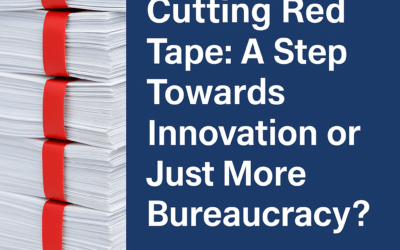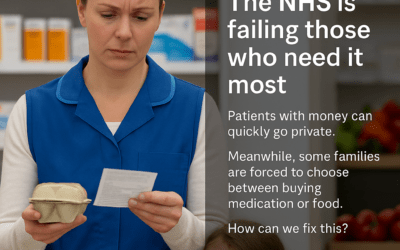Firstly, I would like to say that it is a privilege to work with customers whose primary objective is to improve the health and wellbeing of patients, don’t get me wrong I caution anyone who tells me that they don’t want to make money, as this would be a project doomed to failure, but for every customer I have worked with to date their primary reason for innovating, financial risk, stress and overwork is to improve lives. Some improve lives for patients and families, some for staff but most have innovations that can potentially improve the lives of patients and staff and that is why I love my job.
That is also why my fees are below industry standard, because if something could improve lives, I believe that those with the skills and capability to help should do so, without making the financial risk too high for innovators. I am not getting rich, and also give my time for free to entrepreneurs, charities, trade organisations and new business start-ups on a very regular basis, because we all need a little help now and then.
Those connected to me on LinkedIn might, on occasions, be contacted by me to see if they would be willing to take part in some market research. In all cases to date this research has been to explore the potential for an innovation and establish if it is worth risking further investment in product development. This means that one or two people (often clinicians or academics – maybe with the backing of a university) have been working at risk for some time to develop a product, early-stage development has an income flow only one way and that’s out. They have invested time, money, sweat and tears, but still need to know whether the product will fit with current clinical practice, who would be potentially interested, who certainly wouldn’t be and whether it is worth spending more time and money to get to the next stage.
In short, I work in a sector of innovation called “the valley of death” – catchy I know. This is the point where if a university has been backing research, the product now needs to start demonstrating its potential for outside investment and future sales, this is also the point where privately funded innovations have reached prototype stage, but funding is often running low, with no immediate potential for return on investment and they may need outside investment to continue. In both cases we may be getting to the end of reserves but need to prove one way or another whether the project is worth spending money on, should change direction, or accepted as non-viable.
So, if I am asking for 10-15 minutes of your time unfortunately, I won’t be offering a fee. Without your knowledge and expertise, I could not collate the evidence needed for my customers, but if I pay a fee to those taking part that increases costs to a level that could make this research unaffordable. What this could mean is innovators risking more money developing something that no one wants or giving up on an invention that could improve or save lives. There is also the potential for bias in responses which are paid for, which could skew data and lead to the wrong innovations being invested in and brought to market.
The information that people have shared with me over the past six years has been invaluable for product modifications and investment into many innovations which are still in development and some which are in the market. By taking part in short telephone surveys, you have the potential to help those taking tremendous personal and financial risk to make a difference to patient care. There is always the option to keep in touch with the companies involved and information is anonymised. You may even see the innovation come to your place of work sometime in the future, and hopefully improve your life and that of your patients. Without this type of feedback things don’t change, and the only innovation comes from large companies which may have other vested interests.



